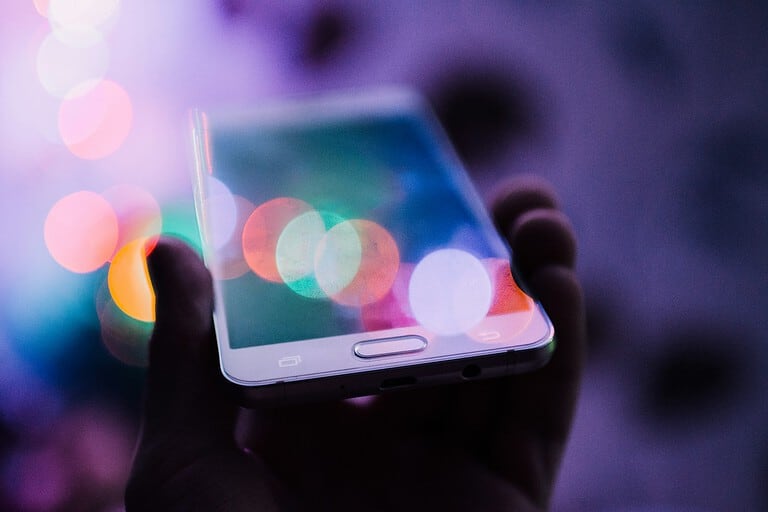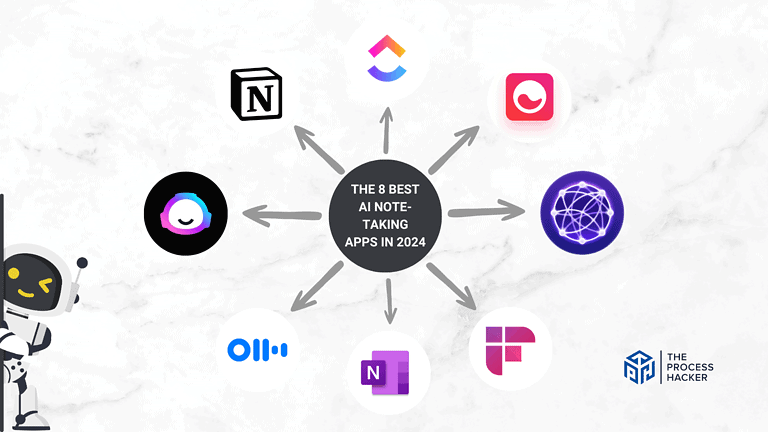How Much Water Should You Drink Daily?
The human body is composed of 60% water; however, 60% of Americans are dehydrated. You need to drink water to survive. Further, drinking water has several benefits, including helping you perform and be more productive during the day.
As you are going about your day, you should drink more water. Even though you may have to go to the bathroom more often, it will be worth it. You should pay attention to how being hydrated makes you feel during the day by asking yourself:
- How do you feel mentally? Does your mind feel clearer?
- How do you feel physically? Do you have more energy?
- How do you look physically? Does your skin look clearer?
- How does it impact your productivity? Are you more productive?
When you start drinking more water, track your progress to see how hydration improves your life for the better.
The Science and Benefits of Drinking Water Daily
Penn State Professor Dr. Larry Kenney says, “Hydration is important because the body is comprised mostly of water, and the proper balance between water and electrolytes in our bodies really determines how most of our systems function, including nerves and muscles.”
Drinking adequate water ensures many physiological functions:
- Nutrient Transport: Water facilitates blood circulation to carry nutrients to your cells and dispose of waste from them.
- Thermoregulation: Water regulates your body’s internal temperature in hot and cold climates due to its large heat capacity.
- Shock Absorption: Water protects your organs and body tissue, which maintains its cellular shape by acting as a shock absorber.
- Joint Lubrication: Water intake helps keep your joints lubricated. It makes up your body’s lubricating fluids such as “saliva and gastric, intestinal, respiratory, and urinary mucous.”
There are several benefits of drinking water during the day. Being adequately hydrated will help you focus, concentration, and perform. As an athlete, staying hydrated during exercise or hot weather is crucial to optimize your physical performance. According to research, proper hydration improves the cycles of muscular contraction, which leads to better performance.
Dehydration: Lacking the Water You Need
When your body loses water and electrolytes throughout the day through outputs such as sweat, breath, urine, and bowel movements, it may not function optimally. This lack of necessary hydration and minerals can lead to dehydration, a state where your mind and body systems operate below their best capacity. Dehydration can be influenced by health problems, other factors such as body temperature, and even the daily fluid intake.
To prevent dehydration, it’s essential to manage the amount of water you should drink. Consuming plain water is the most effective way to hydrate. However, other beverages, including sports drinks, energy drinks, and even caffeinated drinks, can contribute to your hydration needs. Sports drinks are particularly beneficial as they also replenish electrolytes lost during intense physical activities.
It’s also beneficial to include water-rich foods in your diet, which can help maintain hydration. On the other hand, certain drinks and health conditions may increase the need to lose fluids, requiring an adjustment in fluid intake. For instance, caffeinated beverages may lead to more frequent urination, potentially leading to urinary tract infections if not balanced with enough water consumption.
Monitoring your daily fluid intake is crucial, especially when factors like increased body temperature or physical activity come into play. Keeping hydrated helps maintain normal functions and overall health for your body.
Dehydration is a fluid imbalance in the body due to excessive loss of water or insufficient fluid intake.
Your body loses water during sweating, which helps cool down your body. Water is about 60% of your body weight (with muscle mass being about 70-75% water), so the smallest hydration deficit (1-2% of body weight loss) can hinder your physical performance.
Mentally, you may experience diminished focus, concentration, and more headaches. Physically, dehydration can cause varying body temperatures, fatigue, and slower reflexes. Thus, if you want to stay productive and perform, you need to stay hydrated.
How Much Water Should You Drink Daily?
The typical conventional answer is eight 8-ounce glasses (2 liters) of water a day, which is the “one size fits all” one. However, Dr. Trent Nessler, a sports medicine physical therapist, says that “it depends on your size and weight. … In general, you should try to drink between half an ounce and an ounce of water for each pound you weigh every day.”
This amount equates to drinking one to two liters for every 30 kilograms you weigh in the metric system. For example, if you weigh 150 pounds (68 kg), you should drink 75 to 150 ounces (2.3 to 4.5 liters) of water intake a day.
That amount is just a starting point, as you can adjust your total fluid intake based on several factors:
- Exercise: If you workout or do a sweat-inducing activity, you should drink before, during, and after it. It takes about two cups (16 ounces) of fluid to replace every pound lost from sweating.
- High Demanding Job: If you work in a demanding job (e.g., welders, landscapers, construction workers, mechanics), causing high levels of sweating, you will need to drink more.
- Environment: If you live or work in a hot or humid climate, you will sweat and need extra fluid. Additionally, living at a high altitude can make you more susceptible to dehydration.
- Health: When you are sick, especially when experiencing fever, vomiting, or diarrhea, your body loses fluids. Thus, you should drink more water or listen to a doctor’s recommendation for other rehydration solutions.
- Pregnancy/Breast-Feeding. If you are a pregnant or breastfeeding female, you will need to drink extra fluids to maintain hydration. Your body is supporting two and needs more water.
Additionally, some people prioritize their hydration by drinking 34 ounces (one liter) of water first thing in the morning to counteract the mild dehydration that can occur during sleep. While reintroducing fluids in the morning can quickly reverse this fluid loss, research shows that the timing of rehydration does not necessarily limit its health benefits.
Whether you choose to hydrate in the morning or throughout the day, the key is to compensate for the water you lose to maintain optimal body function. Getting sufficient daily water intake is crucial for hydration, energy maintenance, and overall health. Listen to your body and drink water or other sweet drinks when you feel thirsty.
Including fresh fruits in your diet can also increase your fluid intake, as many fruits have high water content. However, it’s advisable to limit the consumption of sweet drinks, which can contribute to excessive sugar intake.
Particular groups, like breastfeeding women, may have increased fluid needs and should be mindful to drink enough fluid to support their health and energy levels. Always staying hydrated helps ensure that your body does not lose water excessively, supporting overall health and wellness.
How to Drink More Water Daily
If you have trouble drinking the right amount of water daily, you are not alone. If drinking that much water sounds challenging, there are many ways to incorporate it into your daily life. Here are a few tips to improve your hydration:
#1) Determine Your Daily Water Intake Goal
Calculate how much water you need to drink daily based on your weight. Dr. Trent Nessler says you should consume between half to one ounce for each pound (or 1-2 liters per kilogram) you weigh.
Then, to take action by framing it as a SMART Goal. For example, if you weigh 150 pounds, your goal would be to “Drink 75 to 150 ounces of water daily to stay hydrated and perform at an optimal level.”
#2) Carry a Water Bottle Everywhere
Buy a reusable water bottle and carry it with you everywhere you go. Good for the environment and you, drinking water will become habitual as you have water in arm’s reach when you feel thirsty. When you finish your water, you can refill it at home, work, or most public places.
Pick a size, material, and color you like so you enjoy carrying it with you. I recommend getting a stainless-steel water bottle from Hydro Flask, Tayeka, or Iron Flask.
#3) Track Your Daily Water Goal
Use a tracking smartphone app to set your goal and record your progress toward it. A dedicated water-tracking app can set goals based on your weight, track progress, and send you reminders.
Personally, I use a habit-tracking app like Habitify to track my water drinking habits by determining how many water bottles I need to drink daily. Based on my weight (160 pounds or 73 kg) and water bottle size (40 ounces or 1.2 liters), I calculate the total water I need to drink daily (160 ounces or 5 liters) and break it down into the number of filled water bottles (about four times).
#4) Drink Water When Waking Up
In Atomic Habits, James Clear says that the fastest way to establish a new habit (drinking water) is to stack it on top of a current habit (waking up). You can keep a glass or water bottle of about a liter (34 ounces) beside your bed.
Thus, when you wake up, you will see the water and drink it first thing in the morning. Mild dehydration occurs during sleep, so you compensate for your water losses.
#5) Hydrate Before Meals
Again, you can stack the new habit of drinking water before you make an established habit of eating a meal. Research shows that drinking water before meals can help you reduce the amount of food you eat (calorie intake) and help you manage your weight.
To help weight loss and management, you should drink about half a liter (16 ounces) of water 30 minutes before meals.
#6) Eat Your Fluid Intake
Water can also be obtained from other sources, such as fruits and vegetables. Although water is present in many other foods, produce has the most water in it.
Pick a few fruits or vegetables you enjoy the most because you are more likely to eat them. Then, snack on them throughout the day or incorporate them into your meals.
#7) Replace Your Beverages
The act of drinking is habitual during our meals, so look for opportunities to drink water instead of sugary, caffeinated, or alcoholic beverages. Sugary drinks may contain a lot of water but are high in calories.
And caffeinated or alcoholic drinks also contain water but will dehydrate you. If you find water boring, consider drinking a seltzer or flavored water instead.
#8) Hydrate During Workouts
When working out, you need to drink about half of a liter (16 ounces) of fluid to replace every half kilogram (1 pound) lost from sweating. Drink water before, during, and after your workout to stay hydrated.
Take a water bottle with you to the gym to make sipping during workouts habitual. It is also a universal way to signal to others that you are using a bench or piece of equipment.
#9) Sip Water During Deep Work
Last but not least, being slightly dehydrated can impact your focus, concentration, and productivity. You should keep a water bottle or glass nearby when doing work, especially Deep Work.
Keeping water nearby will make drinking water habitual, helping you maintain a peak level of cognitive performance while minimizing headaches.
Final Thoughts on Staying Hydrated
Being adequately hydrated will benefit your overall health and help maintain physiological functions in your body.
For anyone trying to get the most focus, concentration, and productivity out of their mind, being well-hydrated during the day will go a long way. You need to drink between half to one ounce for each pound (or 1-2 liters per kilogram) you weigh to maximize cognitive performance.
Remember, your body is mostly water, so it’s essential to give it the hydration it needs to function properly.
So grab a glass of water now and start reaping the benefits!







